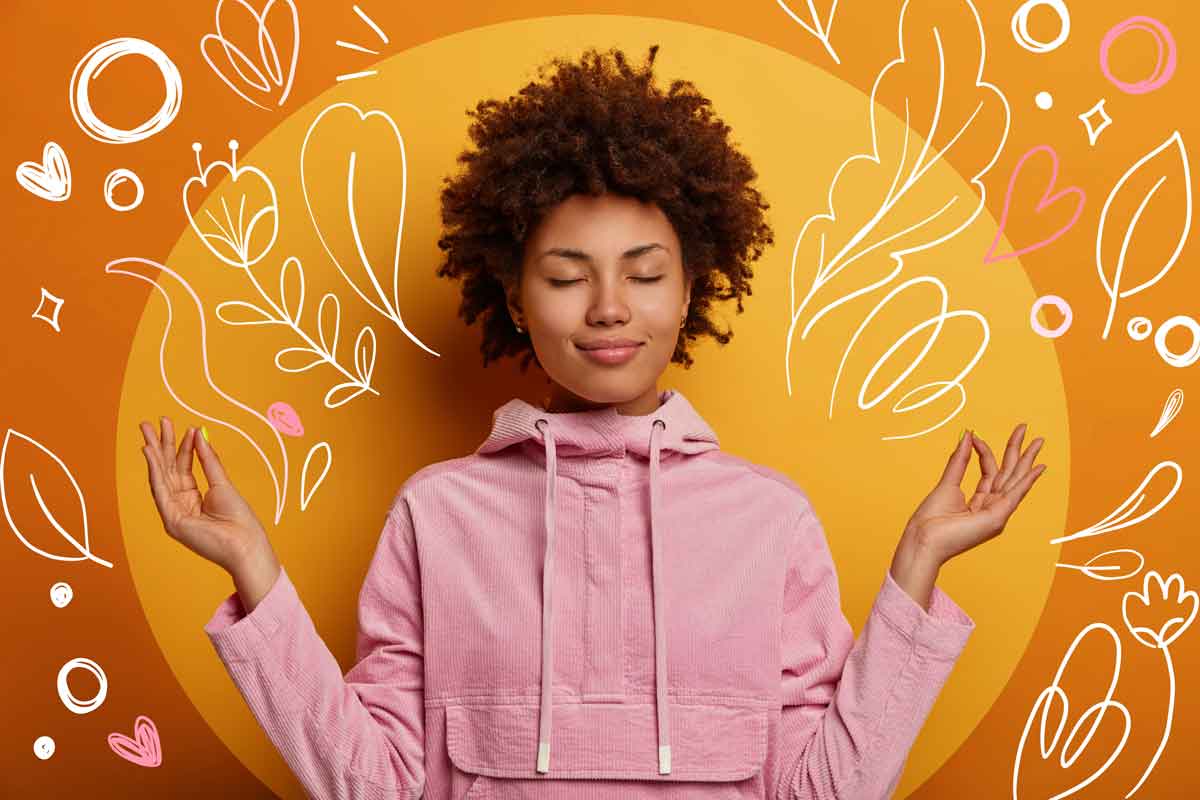With the potential for new connections right at our fingertips, the temptation to dive headfirst into a pool of potential romances is hard to resist. However, studies are showing that a more measured approach to dating apps is actually better for your mental health.
With dating apps like Tinder, Bumble, Grindr, Hinge and Badoo, the breadth of the proverbial playing field has taken on new dimensions in cyberspace. These platforms are exponentially expanding the potential for both connections and rejections, with the latter negatively impacting self-esteem and increasing anxiety. Making sure that you are aware of the potential pitfalls of dating apps — and are in the right mental space to start swiping — can help ensure that looking for love isn’t also taking a toll on your mental health.
The Real Effects of Rejection
The fear of rejection is a widely shared emotion, and for good reason. Social rejection is painful, and actually activates the same pathways in the brain that physical pain does, affecting your emotional, cognitive, and physical health. However, occasional rejection is also a normal experience as we juggle a variety of social relationships, and it can ultimately help us better understand ourselves and what kind of personalities we are compatible with.
Though the dating game has its challenges no matter how you decide to play it, what makes dating apps so different is the sheer volume of people you are exposed to as a potential “match” via your app profile. The limitless choices that dating apps offer can actually be detrimental in some ways; rejections become easier as users search for a more perfect match, and more time is spent looking for love than deepening a potential connection.
In dating apps, matches occur when both you and the person you are interested in swipe or click on each other’s profiles. If there is no mutual interest, then there is no match. This can make people feel self-conscious about their profile, and over time can even impact self-esteem. When you do match with someone, the next step is to message that person to chat and possibly set up an actual date. One study found that around 50 percent of matches do not message back, which can intensify feelings of rejection.
First dates can also be disappointing, particularly when online profiles or chats don’t seem to be representative of the person you actually meet, or if there’s a clear difference in expectations. A sense of dishonesty or manipulation can feed into feelings of stress, anxiety, and even depression about dating.
The ‘Ghosting’ Phenomenon
“Ghosting,” or suddenly disappearing after previous chats or dates and not responding to attempts to communicate, has become an unfortunately common occurrence when using dating apps. Approximately 50 percent of people have experienced ghosting, and a similar number have been the ones to do it. Ghosting generally happens when a one party feels emotional discomfort with the relationship, and the absence of explanation or any type of closure can be intensely painful for the person shunned.
Dating Apps, Depression and Anxiety
As people spend more and more time online looking for love, they also become more likely to experience depression and anxiety. For dating apps in particular, the simple fact that you are evaluating other people’s profiles can impact self-esteem and confidence, and make users feel objectified. In one study, users of a dating app reported that they were less satisfied with their looks and body type than non-users, seemingly internalising what they perceived to be evaluations of themselves.
Numerous studies have linked lengthy periods of internet use, including time spent on dating apps, to negative mental health outcomes. Positively engaging with the world outside of your phone is critical in balancing your outlook and your sense of self.
How to Maximise the Positives of Dating Apps
Despite some downsides, dating apps can help you meet new people, and some have found long-term love from connections first made through an app. Setting a few guidelines for yourself can help you reap the benefits without overly exposing yourself to the negative sides.
TIPS for Healthy Dating App Use
- Ask yourself if you are in the right mental space to use a dating app. A good way to check if you are ready to start swiping is to ask yourself, “Am I resilient enough to handle some rejection right now?” This might sound harsh, but this is a reality of dating and dating apps. If you feel your mind or body telling you “no,” then focus your energies on taking care of what you need.
- Put a time limit on your app use. Multiple studies show a distinct correlation between the time people spend on apps and their resulting happiness – the more time we swipe away, the less happy and satisfied we feel. Instead of spending an hour searching for a more perfect fit, set a time to identify a few possible interests (or not) and move on.
- Try to talk as soon as possible. If you feel like you may have a connection with someone, make an effort to connect via phone, video chat, or in person. This will help both of you get a better sense of who you really are and your compatibility than is possible through a profile or online chats.
- Reach out with positivity and kindness. If you’re feeling frustrated, rushed or just having a bad day, forego any chats. Entering into conversations with positive energy gives you a better chance of meaningful interaction and helps bolster the curiosity needed to explore this potential new person in your life.
- Fortify your commitment to good vibes with good boundaries. It’s important to remember that it is not “ghosting” to put a decisive end to a toxic chat or date. Be clear with yourself about what you expect and be firm and honest with others if they violate those boundaries. This will help protect your heart and your mental health, and hopefully serve as an important lesson for others.
How to Recharge after Rejection
If you’ve reached the point where you’re feeling burned out and exhausted by dating apps, it is likely time to take a step back. Good relationships rarely come from a place of resignation or fatigue, and attending to your own health is critical to enjoying your life to the fullest.
Dealing with rejection is often best handled by surrounding yourself with people that you have meaningful connections with. Talking through your feelings with family and friends and receiving support and affirmation can be tremendously healing. Getting active and exercising also helps to boost your mood and improve your outlook.
If you are doing these things and still feeling overwhelmed by anxiety or depression, consider seeking professional mental health support. A specialist will be able to help you navigate what you’re experiencing, and give you specific tools to cope with life’s challenges.
Improving Your Relationship with Yourself at The Dawn

At The Dawn Wellness Centre and Rehab, we offer highly personalised treatment plans facilitated by an experienced, compassionate team of clinical specialists. Our mental health programme focuses on helping you to:
- Gain a deeper understanding of your symptoms
- Learn skills to manage your condition
We utilise a unique “Twin Pillars” approach to treatment, which combines effective Western psychotherapeutic techniques with proven Eastern wellness practices in order to promote holistic, sustainable healing and growth.
Mental Health Treatment in Thailand
Located amidst lush gardens on a scenic riverside, The Dawn is just outside the beautiful city of Chiang Mai, Thailand. Our resort-like facilities offer a range of amenities to help you feel completely comfortable and totally relaxed. Far removed from the stressors and triggers of daily life you will start feeling better almost immediately.
If you are ready to explore a better relationship with your mental health, connect with The Dawn today to learn more about how we can support your journey.
Related Posts
 The 6 Best Depression Apps of 2019 to Improve Your Mental Health
Mental health issues affect millions of people every day, at every level of society. For those already seeing a therapist, or are afraid to seek help due to the stigmas...
The 6 Best Depression Apps of 2019 to Improve Your Mental Health
Mental health issues affect millions of people every day, at every level of society. For those already seeing a therapist, or are afraid to seek help due to the stigmas...
 Dating While Sober: Tips for Those Newly in Recovery
Getting back into the dating game when you are in recovery can be a tricky process. Taking the time to know yourself, setting expectations, and thinking about how to communicate...
Dating While Sober: Tips for Those Newly in Recovery
Getting back into the dating game when you are in recovery can be a tricky process. Taking the time to know yourself, setting expectations, and thinking about how to communicate...
 7 Mental Health Trends of 2022
The pressure of the last couple of years have pushed many to their limits, with stress, anxiety, and depression skyrocketing. This has spurred a large-scale reckoning on mental health, and...
7 Mental Health Trends of 2022
The pressure of the last couple of years have pushed many to their limits, with stress, anxiety, and depression skyrocketing. This has spurred a large-scale reckoning on mental health, and...
 7 Great Gifts for a Loved One in Recovery
Trying to figure out the perfect gift for your loved one in recovery this festive season? Thinking about their current goals and interests and consider what you can do to...
7 Great Gifts for a Loved One in Recovery
Trying to figure out the perfect gift for your loved one in recovery this festive season? Thinking about their current goals and interests and consider what you can do to...





